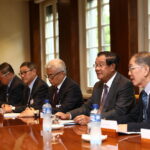SDG 1 No poverty
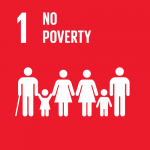
Sustainable Development Goal 1 (SDG 1) seeks to “end poverty in all its forms everywhere”, ensuring extreme poverty is eradicated and overall poverty is reduced by 50%.This goal provides a much more comprehensive approach than the Millennium Development Goals (MDGs) to the issue of poverty. ...
SDG 18 Cambodia mine/ERW free
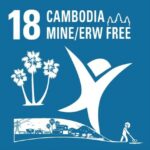
Cambodia has added an 18th goal to its localized version of the Sustainable Development Goals (SDGs) – “End the negative impact of mines/ERW and promote victim assistance”.27 The SDGs were adopted by all United Nations member states in 2015 as a universal call to action ...
Disaster and emergency response funding
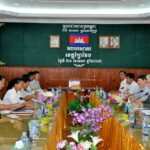
Cambodia has begun to integrate disaster and climate resilience goals into its national policies but implementation remains difficult. In the National Action Plan for Disaster Risk Reduction 2014–2018, the government prioritizes the target to: “build a resilient nation and local communities to pursue sustainable development.” ...
Civil and commercial litigation
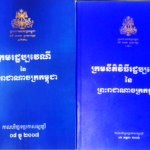
Since 1993, the Royal Government of Cambodia (RGC) has been working to reform the country’s legal framework, and in particular the application of justice, to provide a clear and fixed procedural system to ensure respect for individual rights and equality before the courts.155 In theory, ...
Forest policy and administration
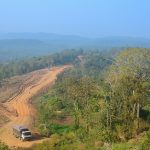
Logging truck in Mondulkiri protected forest , Cambodia. Photo by Global Water Forum, taken on 23 February 2014. Licensed under CC BY-NC-SA 2.0Cambodia is deeply concerned about deforestation. While the country seeks fast economic development, forests represent a tremendous national treasure. In order to help ...
Land tenure and land titling NGOs
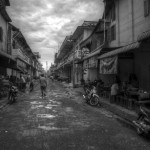
There are four major international donors to land rights development and reform in Cambodia: the World Bank, Germany, Finland and Canada. Their support spans multiple programs and several years with the overall objective of improving land tenure security and promoting stable land markets. ...
Relevant ministries
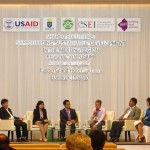
The Ministry of Environment is the main authority mandated to oversee environmental issues, including protected areas, environmental impact assessments, and management of natural resources. ...
Industrial mining
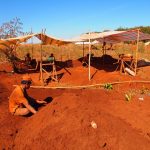
There is no large industrial-scale extraction of minerals carried out in Cambodia yet, but many exploration licenses have been granted and some mining companies have reported promising finds of minerals such as gold. Today companies from China, Korea, Vietnam, Australia and elsewhere are exploring for ...
SDG 12 Responsible consumption and production
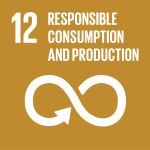
One of the key goals of the 2030 Agenda is to “decouple economic growth from resource use and environmental degradation”.225 Sustainable consumption and production involves promotion of resource and energy efficiency as well as reduction of economic, social and environmental costs. These are intended to ...
Ethnic minorities and indigenous people policy and rights

Cambodia is known for its rich cultural diversity, including ethnic minorities and indigenous communities. As the country has developed, efforts have been made to recognize and protect these groups’ rights through policies and initiatives to promote inclusivity, preserve cultural heritage, and address issues such as ...
Chinese aid
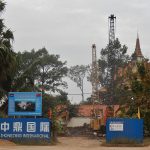
Construction of a laboratory funded by Chinese money. Photo by Michael Coghlan, taken on 10 January 2014. Licensed under CC-BY-SA 2.0China, while once being at odds with the current government, is now Cambodia’s largest development partner. The two nations have grown increasingly close in recent ...
Forests and forestry

Cambodia’s forests have seen a significant reduction of total forest and dense forest cover in recent years, the growth of plantations, particularly rubber, and an ongoing problem with illegal logging. ...
Environmental and biodiversity protection
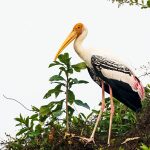
Cambodia is one of the most biodiverse countries in Southeast Asia. Biodiversity supports Cambodians ecologically, economically and culturally. It plays an important role in providing ecosystem services and economic development to achieve the Cambodian Millennium Development Goals including poverty reduction. ...
Environment and natural resources
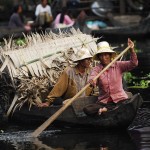
Around three quarters of Cambodia’s population depend on agriculture, forest products and fisheries for their livelihoods, so the management of the environment and natural resources is of great importance. Deforestation has occurred on a large scale. Cambodia lost six percent of its remaining primary forest ...
Bilateral development assistance
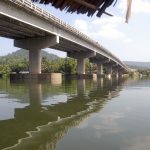
Phum Doung Bridge over the Tatai River. Photo by Robert Tyabji, taken on 9 December 2010. Licensed under CC BY-NC-ND 2.0Bilateral aid is assistance given by a government directly to the government of another country or to a local NGO. The Royal Government of Cambodia ...
State public land

State public land has a public interest value or provides a public service. The land is inalienable, although it can be leased for limited uses that do not alter or damage its public value. State public land should only be reclassified if the land no ...
Private land
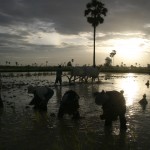
Rights to private land ownership were guaranteed in the 1993 Constitution and formally established by the 2001 Land Law. Despite an established legal framework to protect private property rights, those rights are often insecure for many. ...
Forest classifications
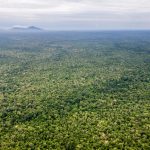
The classification of forests is set out in the Law on Forestry 2002. The law applies to both natural forests and plantations, and “defines the framework for management, harvesting, use, development and conservation of the forests in the Kingdom of Cambodia. The objective of this ...


